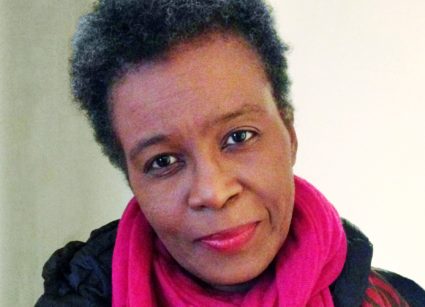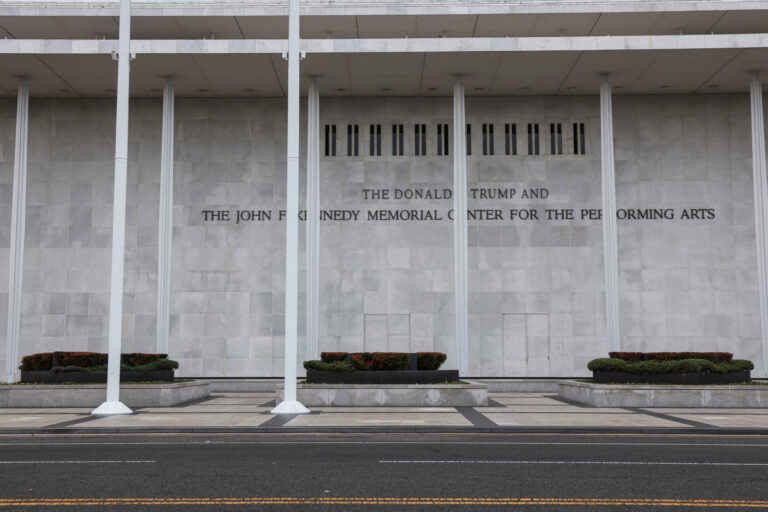
How a natural disaster prompted this poet to focus on race in America
Our July 2020 pick for the PBS NewsHour-New York Times book club is Claudia Rankine's "Citizen." Become a member of the Now Read This book club by joining our Facebook group, or by signing up to our newsletter. Learn more about the book club here.
While staying home during the surging coronavirus pandemic, poet Claudia Rankine finally watched a film she had been waiting to see: Ava DuVernay's "When They See Us," which tells the story of a group of Black and Latino teens who were falsely imprisoned for the rape of a white female jogger in Central Park.
Rankine said she was struck by the number of people involved in the case who had worked to put the innocent defendants, known as the Central Park Five, behind bars, and that the case had long ago reframed her idea of the justice system. "The film stays with me as calls for defunding the police are being made across the country," Rankine told the PBS NewsHour.
In her own book, "Citizen," Rankine writes about police brutality, as well as many of the other forms of racism that Black Americans encounter in their everyday lives. She told the NewsHour she was prompted to consider these themes in her work after Hurricane Katrina devastated Black communities in 2005.
"People didn't understand how pervasive, deep and ordinary racism is in our culture when random people would ask, how did Katrina happen in the United States of America? How did all those mostly Black people end up homeless or drowned when everyone knew the levy was going to break?" Rankine said.
Below, Rankine shares more on her writing routine, and how she finished "Citizen."
What is your daily writing routine?
I have had the same writing schedule since college. I work in the morning before noon. I have always thought of the morning as the time when I can get down on paper what I am thinking before the world enters. The afternoons are dedicated to responding to others and reading.
What is something you've seen, watched or read that you think is overlooked or deserves more attention?
During the quarantine I finally was able to watch Ava DuVernay's "When They See Us." A year had passed since its release and I'd been waiting for a moment when I had enough emotional bandwidth to hold the horror and sadness of the dramatization. The false imprisonment of five Black and Latinx youths for the gruesome rape of the white, female Central Park jogger, given the number of official people — from police, to prosecutor, to judge, to jury — who had to lie, ignore and create evidence, had years ago reframed the justice system as its own form of "wilding" in my mind. [The prosecutor] made her career on the injustice of that case and was never held accountable. The film stays with me as calls for defunding the police are being made across the country.
What is your favorite childhood book?
Louisa May Alcott's "Little Women." It was my first feminist read.
What is the best piece of writer's advice you've received?
Someone once told me that if I repeat something, something has to change. Some movement has to occur. I think someone didn't believe in repetition as emphasis.
Can you describe the particular moment you knew you wanted to write this book? And when you knew it was over?
The moment that made me understand that people didn't understand how pervasive, deep and ordinary racism is in our culture is when random people would ask, how did Katrina happen in the United States of America? How did all those mostly black people end up homeless or drowned when everyone knew the levy was going to break?
"Citizen" is a book that I just stopped writing. What it depicts was never going to be finished; so I just stopped.
Support Canvas
Sustain our coverage of culture, arts and literature.
















